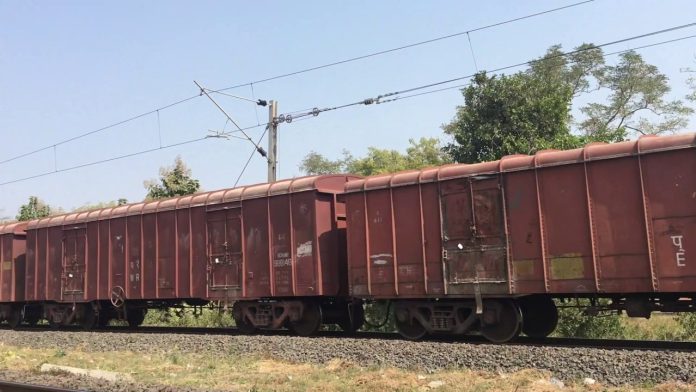Small parcels containing food, medicines and other medical supplies become big for the national transporter in the lockdown as total 54,292 tonnes of such items have been transported till now bringing cheer for the COVID-hit Indian Railways.
The consignments of medicines, medical equipment and food items loaded since the start of the lockdown has fetched nearly Rs 20 crore for Indian Railways amid the economic turmoil due to the pandemic.
Though passenger service has been cancelled due to coronavirus scare, railways is continuing with freight operation for supply of essential goods.
Railways has made available parcel vans for quick mass transportation of E-commerce items in small parcels reaching out to various destinations across the country.
Besides individuals, the customers of these small parcels include state governments and other corporate entities.
Currently, railways is running time-tabled Parcel Special trains, a first in Indian Railways, on select routes, to ensure uninterrupted supply of essential items.
Since there are no other trains except freight service, the line capacity is optimally utilised during the lockdown catering to the emergency needs of the time.
Our aim is to continue time-tabled parcel service even after the lockdown also, said a railway official.
Zonal railways are regularly identifying and notifying routes for these Parcel Special trains. Presently these trains are being operated on 82 routes.
These routes include regular connectivity between major cities – Delhi, Mumbai, Kolkata, Chennai, Bengaluru and Hyderabad.
Besides connectivity from state-capitals/important cities to all parts of the state, the service is also ensuring connectivity to the North-eastern part of the country.
The supply chain is maintained for milk and dairy products from surplus regions such as Gujarat and Andhra Pradesh to high demand regions.
There is supply of other essential items like agricultural inputs, medicines, medical equipment from producing regions to other parts of the country.
This enhanced running of parcel trains of the Railways is to be seen in the context to ramping up the freight operations in the country by making efforts to make it faster, customised and profitable for all.
The total number of trains run till April 5 is 2,067, out of which 1,988 have been time-tabled trains. 54,292 Tonnes of consignments have been loaded, and the earnings have been Rs 19.77 crores.
Railway Minister Piyush Goyal has recently held a meeting to bring E-commerce and logistics companies closer to Railways.
The meeting was convened with the key players/stakeholders of the logistics industry, to brainstorm the possible ways and means towards transforming the freight operations of the Indian Railways.
The marathon meeting which lasted for almost three hours saw a host of suggestions from the Industry on possible policy interventions towards making freight operations more efficient, profitable.
Highlighting the key role that Railways is playing during COVID crisis, the Minister has said that Railways looks upon the COVID crisis with great deal of concern and sympathy and during this period, Railways has acted as a lifeline for the nation by carrying essential goods across the country.
Not only that “We also utilized this time for completion of some of our long pending works like increasing connectivity to the main lines, carrying out long pending maintenance works, dismantling/repairing damaged bridges and Improving our existing infrastructural facilities”, said Goyal.
Simultaneously, we have also acknowledged the tremendous opportunity presented by the freight and logistic business and have planned several measures to improve our services in the near future, stressed the Railways Minister.
The meeting which saw participation of Chairman Railway Board, and other key officials along with top barons of the logistics industry saw a host of constructive suggestions which included switching to an assured time bound delivery model, providing some kind of insurance mechanism to the partners, rationalizing the freight rates and make logistic costs more reasonable, improving the efficiency of loading/unloading at terminals as well as ports in a phased manner.


